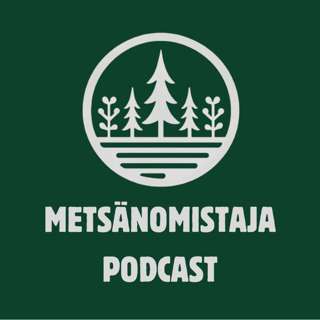
219 - Joscha Bach: Consciousness, Artificial Intelligence, and the Threat of AI Apocalypse
Patreon: https://bit.ly/3v8OhY7 Joscha Bach is a computer scientist and artificial intelligence researcher currently working with Liquid AI. He has previously done research at Harvard, MIT, Intel, and the AI Foundation. In this episode, Joscha and Robinson discuss the nature of consciousness—both in humans and synthetic—various theories of consciousness like panpsychism, physicalism, dualism, and Roger Penrose’s, the distinction between intelligence and artificial intelligence, the next developments of ChatGPT and other LLMs, OpenAI, and whether advances in AI will spell the end of humankind. Joscha’s X: https://x.com/Plinz OUTLINE 00:00 Introduction 03:33 Why are Legos Like Computer Programs? 08:23 Philosophy and Mental Representation 11:17 Using Computer Science to Understand Reality 16:26 Could We Make Minds from Machines? 19:14 Is Reality a Simulation? 21:46 What Is the Mind? 24:27 What Do Mysterions Believe About Consciousness? 26:20 Does Roger Penrose’s Theory of Consciousness Make Sense? 35:15 Could Dualism Explain the Human Mind? 37:58 What Is Physicalism About the Human Mind? 41:03 What’s Wrong with Panpsychism? 47:58 On the Next Breakthrough in Consciousness 52:59 What Is Intelligence? 55:45 What’s Artificial Intelligence? 58:22 What Defines the Current Wave of AI? 01:00:57 On the First AI Winter 01:04:55 On Meaning, LLMs, and ChatGPT 01:08:18 Does ChatGPT Mirror the Human Mind? 01:13:18 Is ChatGPT Intelligent? 01:18:43 Will ChatGPT Become Smarter than Humans? 01:24:25 What Is the ARC Challenge for AI? 01:27:58 Will ChatGPT Philosophize Better than Philosophers? 01:35:04 Are Apple, Google, and Microsoft on the Cutting Edge of AI? 01:39:16 Shoulder We Fear AI? 01:45:34 Are We the Smartest Thing on Earth? 01:49:47 What’s More Dangerous: The Internet or AI? 01:54:20 Could AI Take Over the Planet? 01:59:22 Will AI Make Human Artists Obsolete? 02:04:10 Will AI Make Humankind Dependent on the One Percent? 02:11:28 Could AI Solve Climate Change? Robinson’s Website: http://robinsonerhardt.com Robinson Erhardt researches symbolic logic and the foundations of mathematics at Stanford University. Join him in conversations with philosophers, scientists, and everyone in-betwee
5 Elo 20242h 15min

218 - Norman Finkelstein: Genocide in Israel and Palestine
Patreon: https://bit.ly/3v8OhY7 Norman Finkelstein received his PhD from the Princeton University Politics Department, and is best known for his research on Israel and Palestine. In this episode of Robinson’s Podcast, Norman addresses some of the most common arguments made in defense of Israel, such as those purporting to show Israel is not committing genocide, that anti-Zionism is anti-Semitism, that Israel is fighting in self-defense, that Egypt is responsible for the crisis, and more. Norman also appeared on episode 192, where he and Robinson discussed October 7th, allegations of genocide and apartheid, and connections between the war and the Holocaust. Norman’s most recent book is I’ll Burn That Bridge When I Get to It! Heretical Thoughts on Identity Politics, Cancel Culture, and Academic Freedom (Sublation Media, 2023). Norman’s Website: https://www.normanfinkelstein.com OUTLINE 00:00 Introduction 03:47 Will Israel Nuke Palestine? 12:07 On Palestine and the Holocaust 15:10 Is Israel Getting Away with Genocide? 20:35 On Nuclear War and Israel’s Dependence on the United States 24:00 How Responsible Is Egypt for the Crisis in Gaza? 27:43 Does the Israeli Military Target Civilians? 36:27 Why Norman Finkelstein Can’t Watch the News from Palestine 38:06 On Hoaxes and Conspiracies in Israel-Palestine 47:06 On Corruption in Academia 49:16 Propaganda in Holocaust Scholarship 53:00 Facts and Fiction in Israel-Palestine 1:00:27 Norman Finkelstein’s Research Habits 1:05:10 Do Israeli Settlements Break International Law? 1:07:44 Why Does the United States Support Israel? 1:12:21 “Jewish Supremacy” Versus Harvard 1:20:11 Does Anti-Zionism = Anti-Semitism? 1:29:38 Does Anti-Semitism Cause Protests Against Israel? 1:35:44 Is The War in Gaza Justifiable as Self-Defense? 1:42:39 On Becoming a Public Figure 1:50:51 On His War with Alan Dershowitz 2:04:19 On Integrity and Palestine Scholarship Robinson’s Website: http://robinsonerhardt.com Robinson Erhardt researches symbolic logic and the foundations of mathematics at Stanford University. Join him in conversations with philosophers, scientists, and everyone in-between.
31 Heinä 20242h 8min

217 - Leonard Susskind: String Theory, Fine-Tuning, and the Physics of the Multiverse
Patreon: https://bit.ly/3v8OhY7 Leonard Susskind is Felix Bloch Professor of Physics at Stanford University. Among other accomplishments, he is among the fathers of such revolutionary concepts in physics as string theory, black hole complementarity, the holographic principle, and the string-theoretic landscape. It is this last concept that Robinson and Leonard discuss in this episode. More particularly, they address the fine-tuning problem—that so many of the constants in physics, such as the cosmological constant—appear to have been selected precisely to allow for human life, as if they were substantially different we would not exist. In answering this question they talk about string theory, dark energy, the Higgs boson, god and supernatural explanations, eternal inflation, the multiverse, the interpretations of quantum mechanics, the anthropic principle, alternative answers to the problem, and the future of research in the area. For more detail, read Leonard’s book on the topic, The Cosmic Landscape. The Cosmic Landscape: https://a.co/d/j2njH7h The Theoretical Minimum: https://theoreticalminimum.com OUTLINE 00:00 Introduction 04:03 A Parable About the Fine-Tuning Problem 09:58 String Theory and the Fine-Tuning Problem 18:04 The Problem of Dark Energy 25:05 Could Dark Energy Rip the Universe Apart? 33:11 God, String Theory, and the Illusion of Intelligent Design 42:51 On the String-Theoretic Landscape 48:54 The Eternal Inflation of the Universe 55:07 What Determines the Physics of the Multiverse? 01:02:09 On the Interpretations of Quantum Mechanics 01:05:50 On the Future of String Theory and Fine-Tuning Robinson’s Website: http://robinsonerhardt.com Robinson Erhardt researches symbolic logic and the foundations of mathematics at Stanford University. Join him in conversations with philosophers, scientists, and everyone in-between.
21 Heinä 20241h 11min

216 - Raphael Bousso: The Black Hole Paradox, Quantum Gravity, and the Holographic Principle
Patreon: https://bit.ly/3v8OhY7 Raphael Bousso is the Chancellor’s Chair in Physics at the Berkeley Center for Theoretical Physics, where he leads the Bousso Group in research on quantum gravity and quantum information. He is a renowned string theorist famous also for his development of the string theoretic landscape and the Bousso bound in holography. In this episode, Robinson and Raphael discuss the groundbreaking work of Jacob Bekenstein, Stephen Hawking, Leonard Susskind, Gerard ’t Hooft, and others on the black hole information paradox. They then turn to how this led to the formulation of the holographic principle, which has had profound implications for research on quantum gravity, especially for Raphael himself, who has recently been working on quantum information theory, quantum communication, and other ways in which classical gravity “knows about” and encodes its own quantum states. The Bousso Group: https://lightsheet.berkeley.edu OUTLINE 00:00 Introduction 04:14 Working with Leonard Susskind and Stephen Hawking 6:29 Why Do Physicists Care About Black Holes? 19:11 Do Black Holes have a Temperature? 23:51 How Cold is a Black Hole? 27:32 The Black Hole Information Paradox 41:31 Do Black Holes Mean Quantum Mechanics Must be Thrown Out? 47:09 Black Hole Complementarity and Holography 54:09 What Is Quantum Gravity? 01:01:15 Why is Quantum Gravity a Low Energy Problem? 01:06:54 The Bottom-Up Approach to Quantum Gravity 1:11:12 On String Theory and Holography 01:16:00 What Are Bousso Bounds? 01:22:58 Is Gravity a Quantum Error-Correcting Code? 01:32:09 Is Gravity a Fundamental Force? 01:37:25 On String Theory and the Multiverse Robinson’s Website: http://robinsonerhardt.com Robinson Erhardt researches symbolic logic and the foundations of mathematics at Stanford University. Join him in conversations with philosophers, scientists, and everyone in-between.
14 Heinä 20241h 45min

215 - Anna Lembke: On Philosophy and Psychiatry
Patreon: https://bit.ly/3v8OhY7 Dr. Anna Lembke received her undergraduate degree in Humanities from Yale University and her medical degree from Stanford University. She is currently Professor and Medical Director of Addiction Medicine at the Stanford University School of Medicine. She is also Program Director of the Stanford Addiction Medicine Fellowship, and Chief of the Stanford Addiction Medicine Dual Diagnosis Clinic. This is Anna’s second time on the show. On episode 117, she and Robinson discussed her latest, New York Times bestselling book, Dopamine Nation (Dutton/Penguin Random House, August 2021). In this episode, they discuss psychiatry and some of its philosophical connections. Some of the topics they cover include psychiatric phenomenology, eating disorders, the patient-psychiatrist relationship, therapeutic modalities, moral realism, the goals of therapy, and the upcoming Official Dopamine Nation Workbook. Dopamine Nation: https://a.co/d/0AJw6Je The Official Dopamine Nation Workbook: https://a.co/d/0eVHKFc1 OUTLINE 00:00 Introduction 03:01 Meta-Commentary, Telehealth, and In-Person Psychiatry 13:50 Transference in Therapy 23:01 Moral Realism 33:45 Nietzsche and Veganism 42:43 Reductionism, Emotion, and Psychiatry 45:55 On Treating Eating Disorders 52:24 The DSM-V and Psychiatric Practice 01:00:00 The Relationship Between Science and Psychiatry 01:08:31 Robinson’s Speech Patterns 01:15:40 Medication Versus Therapy 01:23:07 Creative Pursuits and Therapy Robinson’s Website: http://robinsonerhardt.com Robinson Erhardt researches symbolic logic and the foundations of mathematics at Stanford University. Join him in conversations with philosophers, scientists, and everyone in-between.
7 Heinä 20241h 37min

Ask Me Anything | July 2024
Patreon: https://bit.ly/3v8OhY7 This is the inaugural AMA for Robinson’s Podcast. It is supported by the members of the podcast’s Patreon. In this installment, Robinson answers questions about the reality of mathematics, podcasting, moral facts, ice cream, the nature of time, literary books for neophytes, and more. Denying Infinity: https://doi.org/10.1080/01445340.2024.2344346 Abstract: Abraham Robinson is well-known as the inventor of nonstandard analysis, which uses nonstandard models to give the notions of infinitesimal and infinitely large magnitudes a precise interpretation. Less discussed, although subtle and original—if ultimately flawed—is Robinson’s work in the philosophy of mathematics. The foundational position he inherited from David Hilbert undermines not only the use of nonstandard analysis, but also Robinson’s considerable corpus of pre-logic contributions to the field in such diverse areas as differential equations and aeronautics. This tension emerges from Robinson’s disbelief in the existence of infinite totalities (any mention of them is ‘literally meaningless’) and the fact that much of his work involves them. I argue that he treats infinitary avenues of mathematics as useful tools to avoid this difficulty, but that this is not successful to the extent that these tools must be justified by a conservative extension from finitary mathematics. While Robinson provides a compelling and unorthodox pragmatic justification for the role of formal systems in mathematical practice despite their apparent infinitary presuppositions, he deflates mainstream mathematics to a collection of games that occasionally produces meaningful results. This amounts to giving up on a commitment to reconciling his finitism with his mathematical practice. Robinson’s Website: http://robinsonerhardt.com Robinson Erhardt researches symbolic logic and the foundations of mathematics at Stanford University. Join him in conversations with philosophers, scientists, and everyone in-between.
3 Heinä 20241h 29min

214 - Joyce Carol Oates: On Philosophy and Literature
Patreon: https://bit.ly/3v8OhY7 Joyce Carol Oates is the Rogers S. Berlind ’52 Professor Emerita in the Humanities at Princeton University with the Program in Creative Writing. She is among the most widely-recognized and respected writers of our time, and has written in a wide variety of media and genres, from poetry and fiction in the former category to horror and Gothic in the latter. Her work has also been adapted into various other media, from plays to film. Joyce is the recipient of two O. Henry Awards and the National Book Award, among many others. This is Joyce’s second appearance on Robinson’s Podcast. In episode 137, she and Robinson discussed craft in fiction and poetry. In this episode, they talk about Joyce’s most recent collection of short stories, Zero-Sum (link in the description), as well as philosophy, Peter Singer, dealing with criticism, translation, and more. Joyce’s Twitter: https://twitter.com/JoyceCarolOates Joyce’s Substack: https://joycecaroloates.substack.com Zero-Sum: https://a.co/d/0cYh3ndo OUTLINE 00:00 Introduction 03:16 On Peter Singer 12:41 On Buddhism 21:50 On Hemingway 25:50 Dealing with Criticism 38:17 On Translation 47:53 Writing Short Stories 58:38 Imagery and Recreating the World Robinson’s Website: http://robinsonerhardt.com Robinson Erhardt researches symbolic logic and the foundations of mathematics at Stanford University. Join him in conversations with philosophers, scientists, and everyone in-between.
30 Kesä 20241h

213 - Slavoj Žižek: God, Marxism, Philosophy, and Quantum Mechanics
Patreon: https://bit.ly/3v8OhY7 Slavoj Žižek is international director of the Birkbeck Institute for the Humanities at the University of London, visiting professor at New York University, and a senior researcher at the University of Ljubljana’s Department of Philosophy. This is Slavoj’s fourth appearance on the show. On episode 109, he and Robinson discussed wokeness and psychoanalysis. On episode 118, he, Sean Carroll, and Robinson discussed quantum physics, the multiverse, and time travel. And on episode 206 he, Lee Smolin, and Robinson discussed quantum physics. In this episode, Robinson and Slavoj talk about ancient philosophy, god, communism, quantum mechanics, and psychoanalysis. OUTLINE 00:00 Introduction 02:47 Why Is Philosophy More important Now Than Ever? 11:08 On Socrates and the Importance of Philosophy 19:12 On Excrement, God, and Atheism 27:50 A Communist Paradise 34:18 Ukraine and Marxism 39:24 Philosophy and Quantum Mechanics 47:56 Is Lying the Point of Language? 55:49 Cursing as a Test for Artificial Intelligence 58:25 On Philosophers and Physicists 1:01:50 On Superpositions and Quantum Mechanics 1:09:28 On Analytic and Continental Philosophy Robinson’s Website: http://robinsonerhardt.com Robinson Erhardt researches symbolic logic and the foundations of mathematics at Stanford University. Join him in conversations with philosophers, scientists, and everyone in-between.
23 Kesä 20241h 16min





















